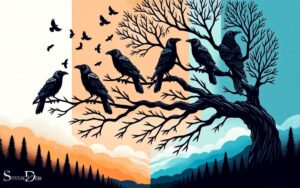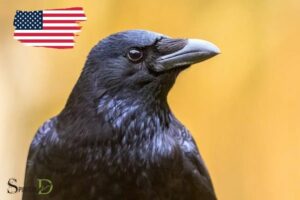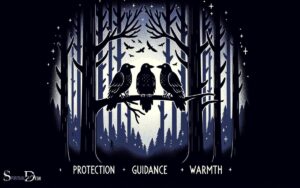What Is The Spiritual Meaning Of A Crown? Authority, Power!
The spiritual meaning of a crown encompasses its role as a symbol of divine authority, spiritual enlightenment, and eternal life.
Throughout history, crowns have been seen as an emblem of a ruler�s divine right to govern and a representation of their connection to a higher power.
In various religious traditions, a crown signifies spiritual triumph and the ultimate achievement of enlightenment or salvation.
Culturally and historically, the crown has signified:
For example, in Christianity, the Crown of Thorns that Jesus wore is symbolic of his sacrifice and the suffering he endured.
In contrast, the golden crown is often used to depict the glory and honor bestowed upon the saints in heaven.
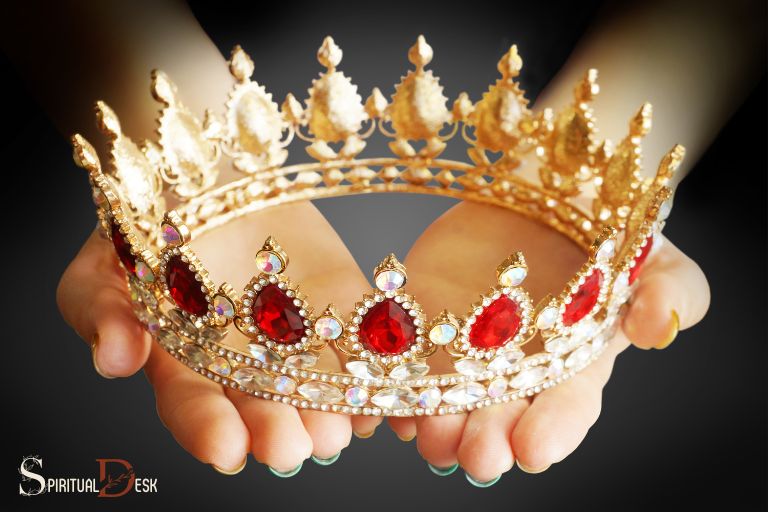
Key Takeaway
Historical Symbolism of Crowns
The historical symbolism of crowns dates back to ancient civilizations, representing power, authority, and divine right.
In ancient Egypt, the pharaohs wore crowns as a symbol of their divine status and rulership over the land.
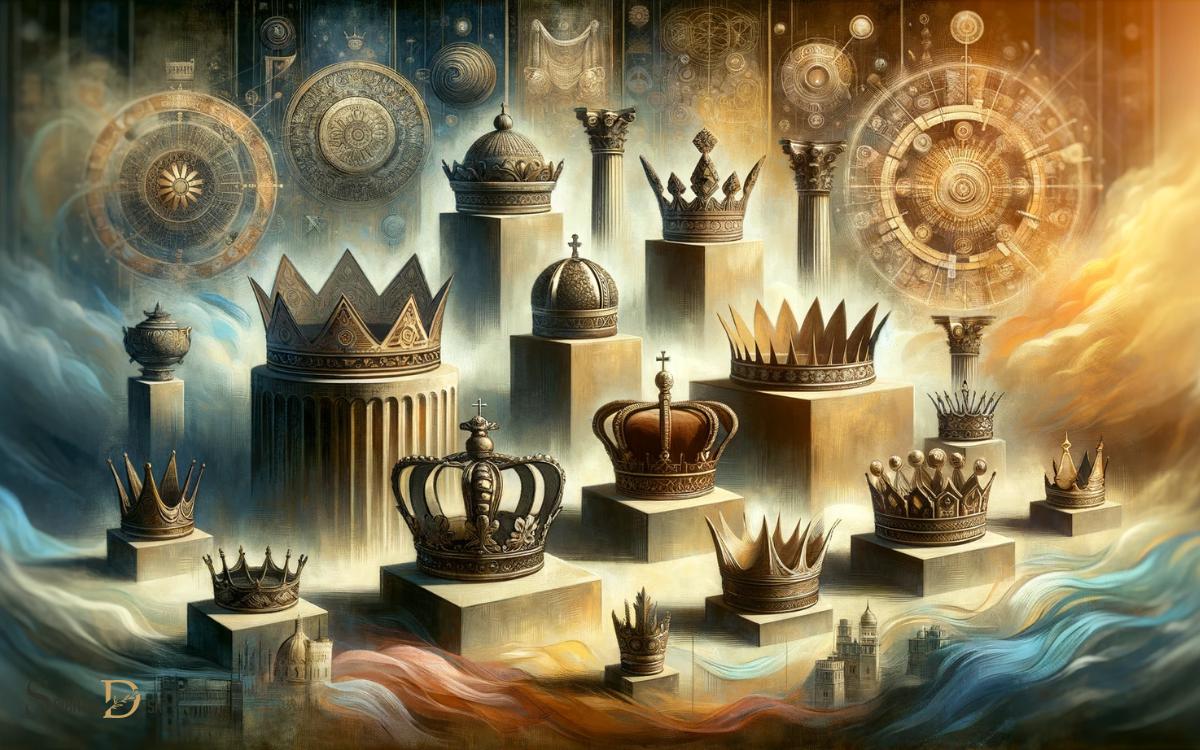
The Roman Empire also used crowns to signify the authority of the emperors, and in medieval Europe, monarchs were crowned to legitimize their right to rule by divine sanction.
Throughout history, crowns have been associated with leadership, honor, and the highest rank in society. They have been adorned with precious jewels and metals, signifying the importance and grandeur of the wearer.
The symbolism of crowns has transcended time and culture, continuing to symbolize leadership, authority, and the divine right to rule.
Cultural and Religious Significance
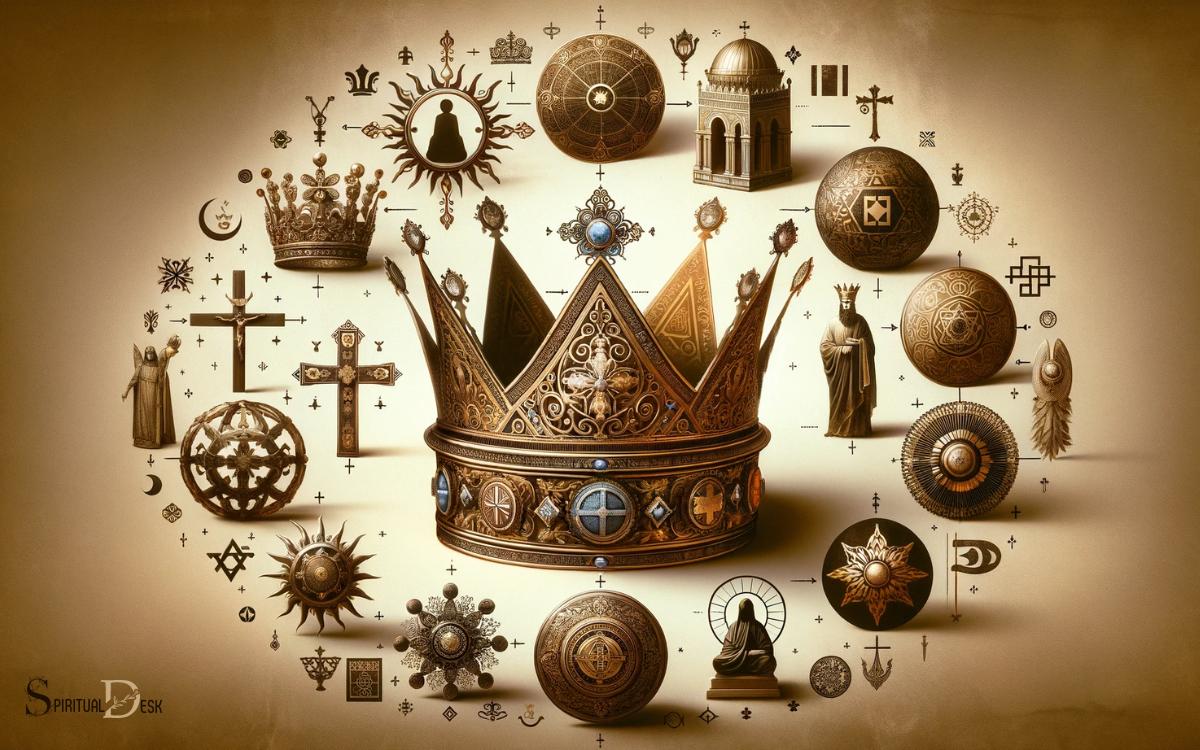
Symbolizing leadership, honor, and divine right, crowns hold a significant cultural and religious significance across various civilizations and faith traditions.
In different cultures and religions, the crown represents authority, power, and the connection to the divine.
Here�s a brief overview of the cultural and religious significance of crowns in various traditions:
| Civilization/Religion | Significance |
|---|---|
| Ancient Egypt | Symbol of pharaoh�s authority and divinity |
| Christianity | Represents sovereignty of Christ and the glory of saints |
| Hinduism | Signifies the divine authority of kings and gods |
| Native American | Represents leadership and honor within tribes |
| Buddhism | Symbol of enlightenment and spiritual authority |
These examples illustrate the diverse ways in which crowns are revered and hold deep cultural and religious significance across different societies and belief systems.
Crown as a Spiritual Metaphor
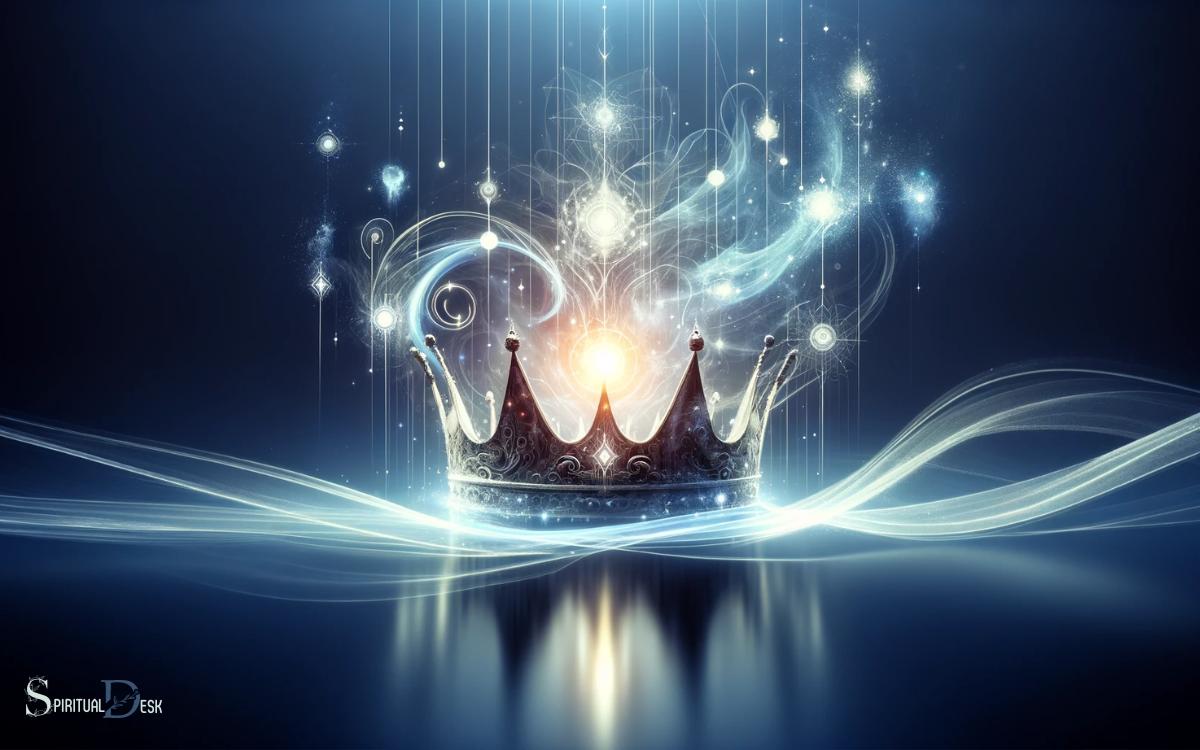
Representing spiritual authority and divine connection, the crown serves as a powerful metaphor in various religious and spiritual traditions.
- In Christianity, the crown symbolizes the reward and glory awaiting the faithful in heaven. It represents the sovereignty of Christ and the idea of believers being �crowned� in the afterlife.
- In Hinduism, the crown, or mukuta, worn by deities signifies their supreme status and divine power. It is a visual representation of their spiritual authority and enlightened consciousness.
- Additionally, in Buddhism, the crown chakra, located at the top of the head, is considered the center of spiritual connection and enlightenment. It is often depicted as a radiant crown, symbolizing the attainment of spiritual perfection.
Across different faiths, the crown metaphorically embodies the concepts of spiritual attainment, enlightenment, and divine authority.
The Divine Connection of Crowns
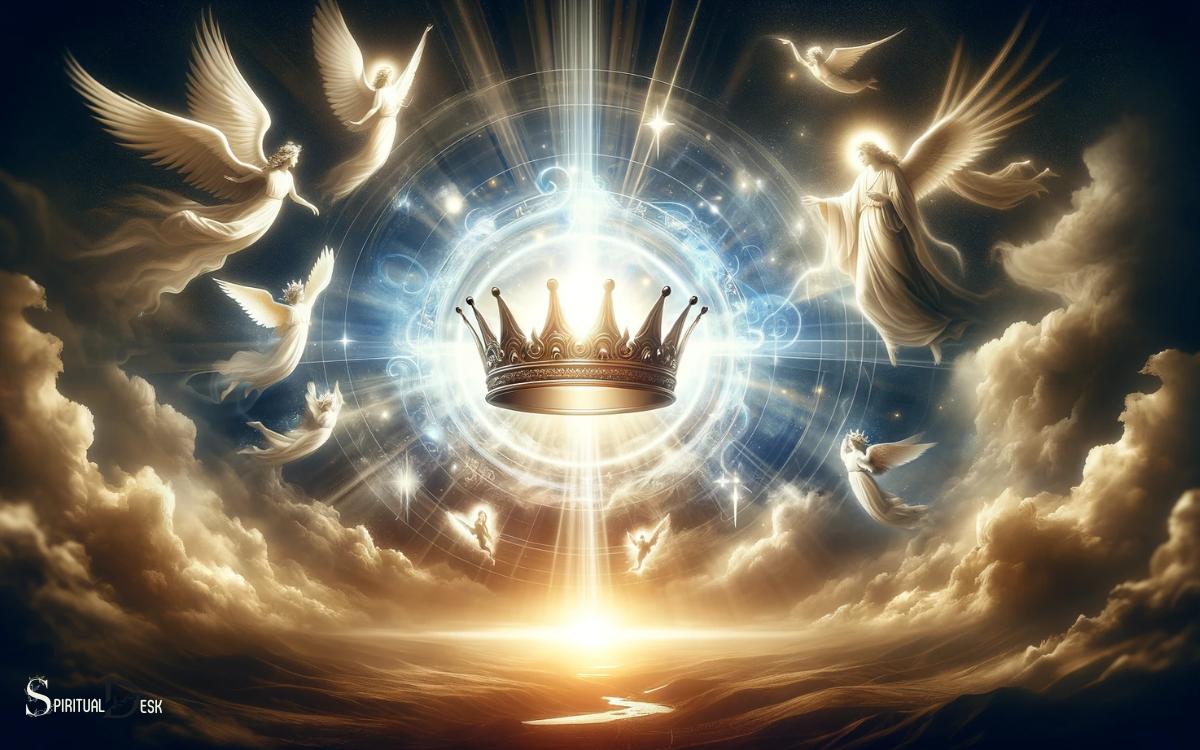
In various religious and spiritual traditions, the crown serves as a powerful metaphor for the divine connection and spiritual authority. The divine connection of crowns symbolizes the link between earthly rulers and the divine realm.
- In Christianity, crowns are often associated with the sovereignty of God and the spiritual authority bestowed upon kings and queens.
- The crown represents a sacred bond between the earthly and the heavenly, signifying the responsibility and accountability of those in positions of power.
- In Hinduism, the crown, or �mukuta,� worn by deities and spiritual leaders, signifies their elevated spiritual consciousness and their role as intermediaries between the mortal realm and the divine.
- Similarly, in Buddhism, the crown chakra, known as the �Sahasrara,� represents the highest state of consciousness and the divine connection to universal energy.
This divine connection of crowns underscores the spiritual significance and profound responsibility associated with positions of authority.
Modern Interpretations and Usage
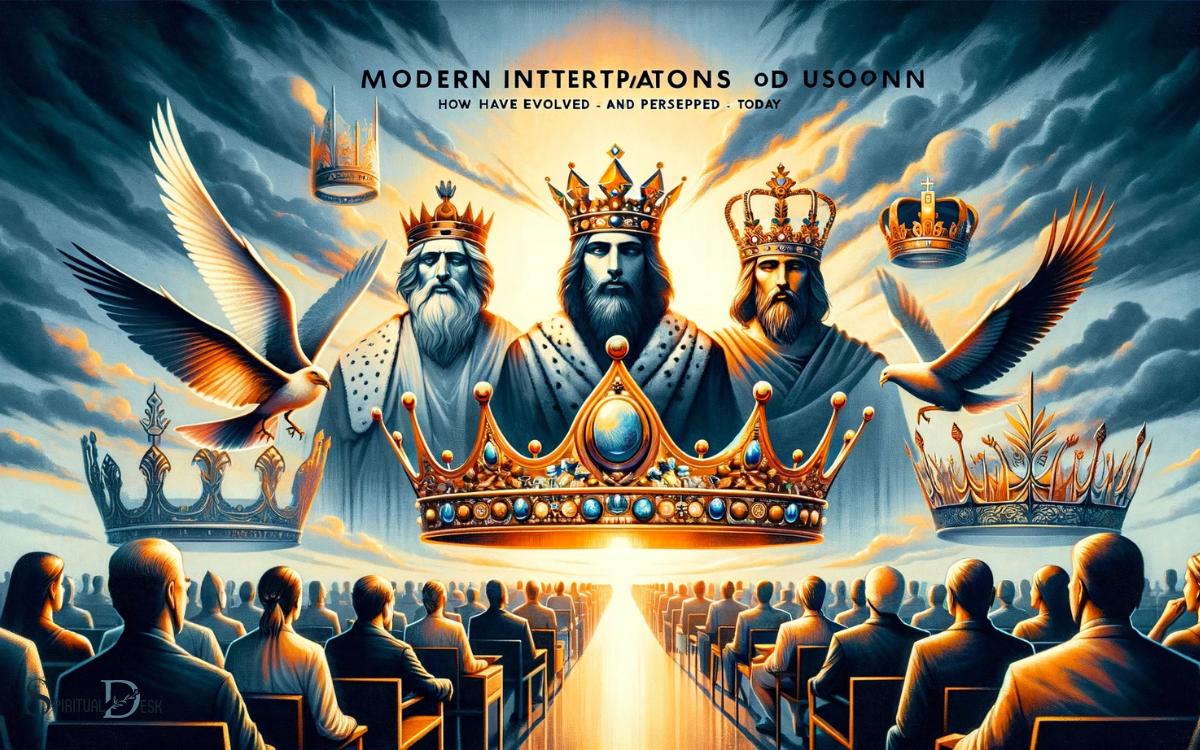
The divine symbolism of crowns continues to have relevance in modern society, with their usage extending beyond traditional religious and spiritual contexts into realms such as art, fashion, and popular culture.
In today�s world, crowns are often interpreted and utilized in the following ways:
- Art: Contemporary artists incorporate crowns into their work to symbolize power, authority, and sovereignty, or to make social and political statements.
- Fashion: Crowns are featured in high fashion as elegant and regal accessories, representing luxury, status, and glamour.
- Popular Culture: Crowns are frequently used in movies, television shows, and music videos to signify royalty, leadership, and achievement.
- Social Media: Crowns have become popular symbols in memes and emojis, representing excellence, success, and being on top.
These modern interpretations and usages reflect the enduring significance of crowns in today�s world.
Conclusion
The spiritual meaning of a crown has deep historical, cultural, and religious significance. It is often used as a metaphor for spiritual enlightenment and divine connection.
In modern times, the crown continues to be a powerful symbol in various spiritual practices and traditions.
According to a study by the Pew Research Center, 53% of Americans believe in the existence of guardian angels, showing a continued interest in spiritual symbols and beliefs.


